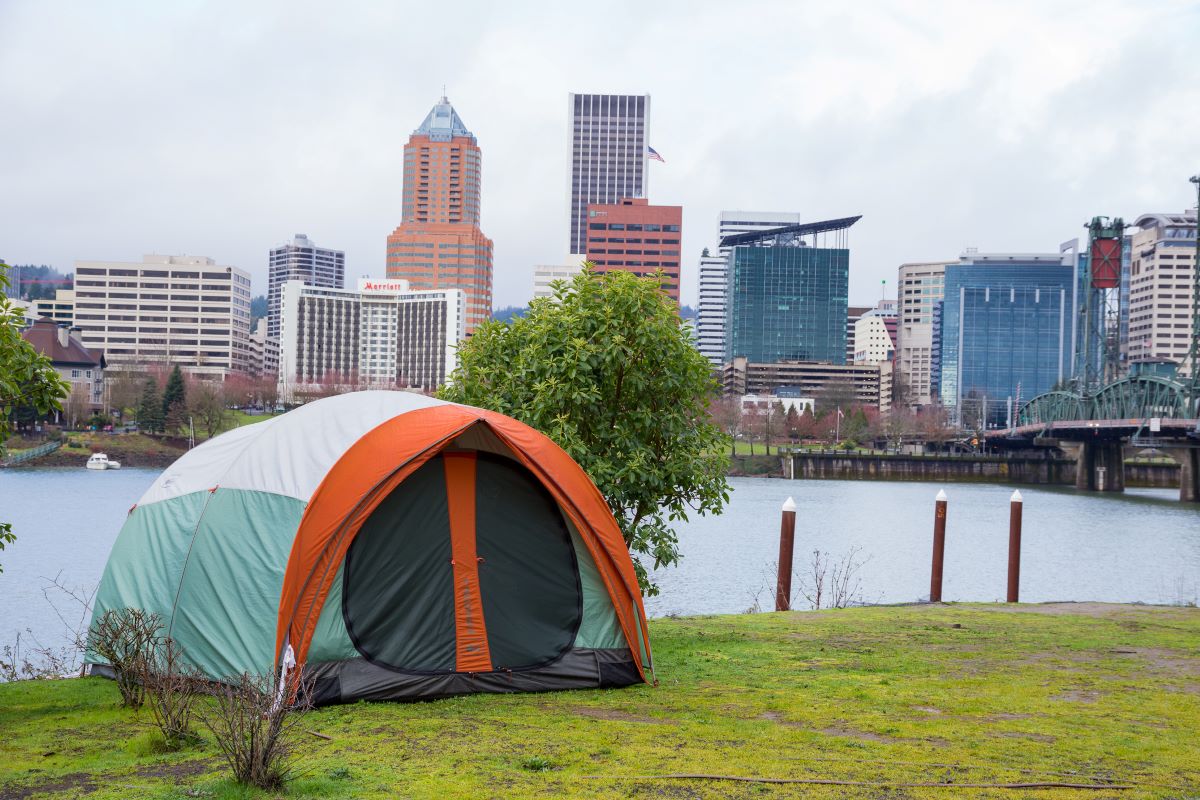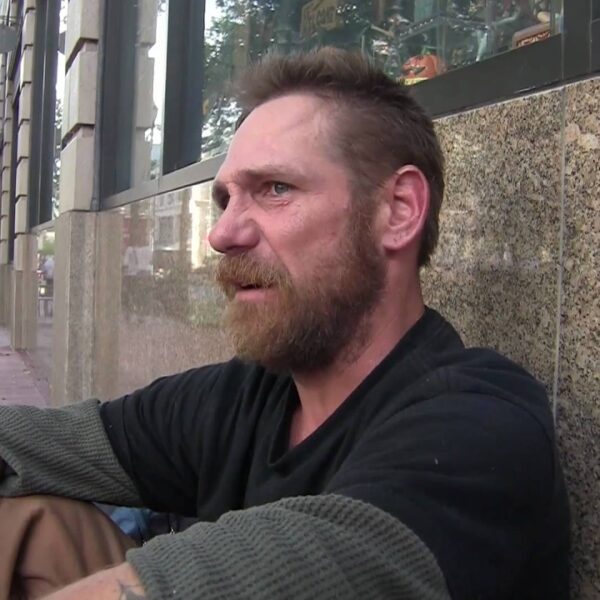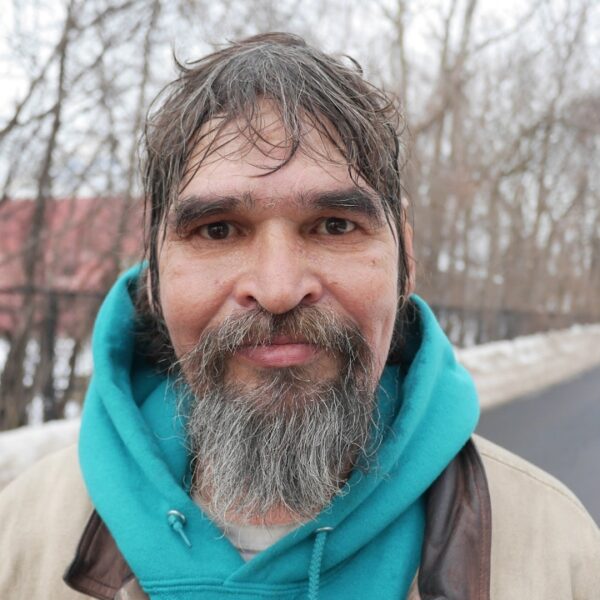Despite Strong Opposition, City Council Caved to Criminalization
A new ordinance passed by Portland City Council and supported by Mayor Ted Wheeler criminalizes camping on public property from 8 am to 8 pm. It also tightens restrictions on camping at other times.
This law sacrifices the limited comfort and safety of unhoused Portlanders in favor of the hypothetical increased profits of the local businesses pushing for the ban.
What Does the Ban Say?
The ban prohibits camping outside on public property between 8 am to 8 pm and requires all tents and personal belongings to be removed during those times. It also bans nighttime camping in parks, along riverbanks, on public docks, and within 250 feet of schools and city-sanctioned homeless villages.
The ban also prohibits the following:
- blocking a sidewalk with a tent anywhere at any time
- building temporary shelters
- using gas heaters or fires
- littering
- digging
- disassembling or selling more than three bikes or two cars
If you’re caught breaking any of these new rules, you will first be given a written warning by the police. On the third violation, you can be fined up to $100 or sentenced to 30 days in jail.
Who Will This Affect?
The daytime camping ban might not seem like a big deal to those who sleep in a warm bed each night and spend many hours from 8 am to 8 pm out of the house. Still, the implications are very different for unhoused people with no locked door to secure themselves or their belongings.
The text of the ordinance requires tents and all other belongings to be removed during the day. That means everyone has to pack up all their belongings before 8 am and then carry them around all day until they’re again allowed to use the public space at 8 pm.
This is not feasible for everyone, particularly people who have jobs to work or disabilities that prevent them from carrying around everything they need to survive. Many people will have no choice but to try and stash their belongings in a safe place and hope they’re well-hidden enough that they’re not trashed or stolen by the time they can get back to them.
This ban will also significantly affect homeless women and children, who often choose to sleep during the daytime hours so that they can be more vigilant at night when they’re more vulnerable to violence.
It will also impact anyone who works a job during the night shift and will now have to try and get sleep in fits and starts anywhere they can close their eyes for a few minutes before being asked to leave.
Voices of Dissent Ignored
At what turned out to be a marathon city council session, more than 100 Portlanders shared their thoughts on the ban in a meeting that stretched more than 5 hours. The majority of these voices opposed the ban, including formerly homeless Portlanders, activists, advocacy groups, and everyday concerned citizens. These voices were ignored by all but one of the voting council members.
Commissioner Carmen Rubio voted against the ban and proposed an unsuccessful amendment to it that would have paused the imposition of fines and jail time in connection with this ban until the city of Portland could supply enough shelter beds for all homeless Portlanders. By current estimates, there are enough spaces for about half of the city’s unhoused residents.
Rubio encouraged councilmembers to remember a commitment they had all made last year to “exclude any provisions that would criminalize people solely for being homeless.” This cogent argument seemed to fall on deaf ears.
Brazenly ignoring all evidence to the contrary, Mayor Wheeler had this to say about the ban:
“I believe that this would be helpful for those who are currently struggling on our streets, and I believe that this is what Portlanders, in general, are asking for as well.”
Where Are People Meant to Go?
As usual, little thought has been given to where people displaced by these bans are supposed to go. Since there are so few places where visibly unhoused people can exist without fear of being thrown out, and even fewer where they can do that while toting a huge backpack or wagon full of all their earthly belongings, the tired defense of this daytime camping ban as “for their own good” rings more than a bit hollow.
This camping ban feels like an attempt to make the city of Portland so inhospitable that unhoused people are forced to leave the city entirely. That seems to be the outcome many of the ban’s supporters would prefer.
Will The Ban Stand?
Only time will tell if this ban will be upheld. Before it was voted on, city commissioners were warned by civil rights attorneys that the legislation might violate state and federal law and would open the city up to litigation.
Ironically, it’s likely that this ban was passed to replace the broader ban on public camping Portland already has in place since that rule is likely in violation of a new Oregon law. That new law, House Bill 3115, requires cities to make “objectively reasonable” rules regarding sitting and lying on public property.
City attorneys hope that allowing camping from 8 pm to 8 am will meet the requirement of being “objectively reasonable.” It depends on who you ask, which should call into question the whole concept of objective reasonability.
The ban may be struck down after a lengthy trip through the legal system. Still, there’s not much stopping Portland City Council from instituting another new, slightly different ban in its place and repeating that process ad nauseum. Either way, many Portlanders will be harmed in the meantime.













